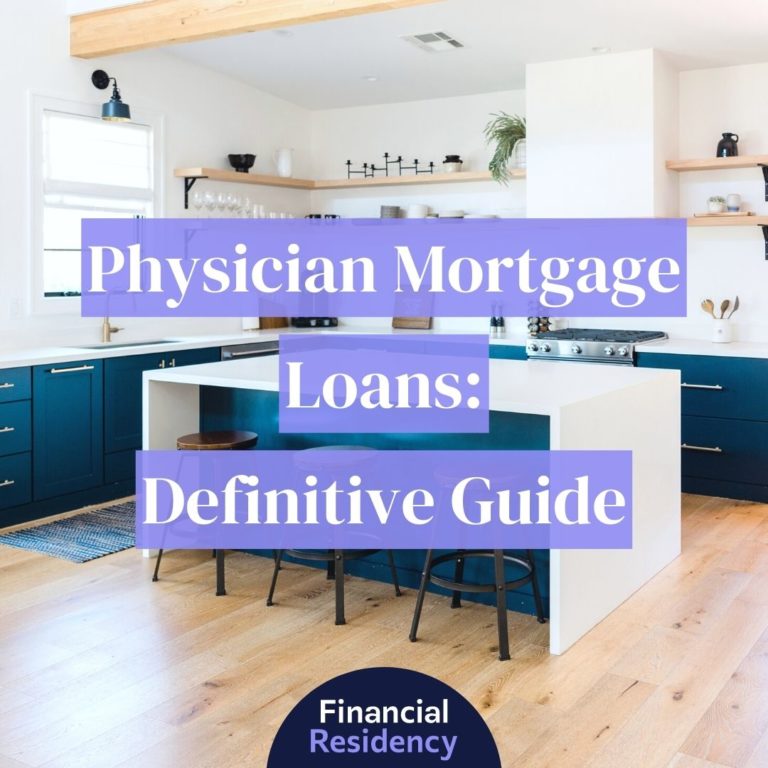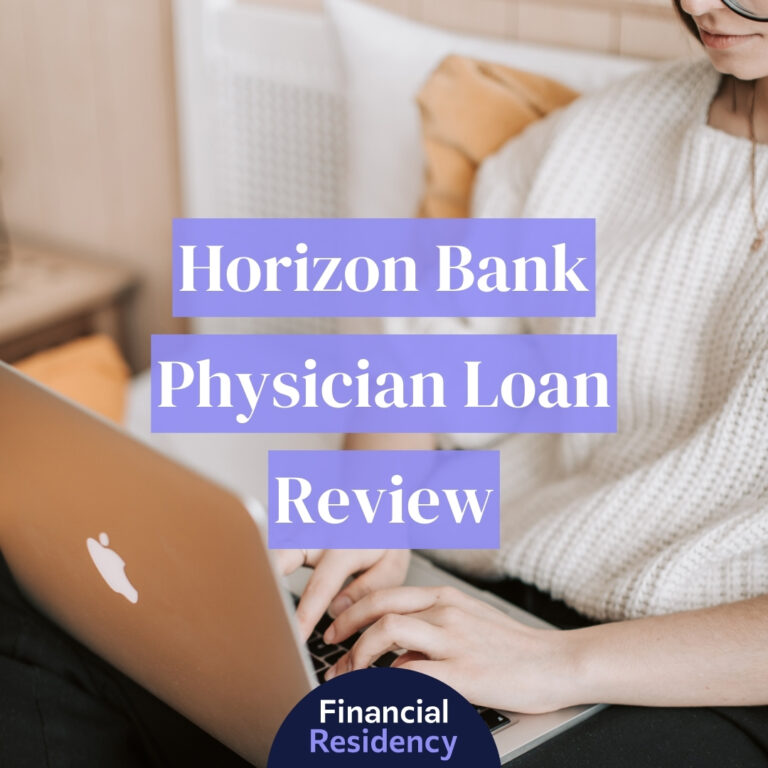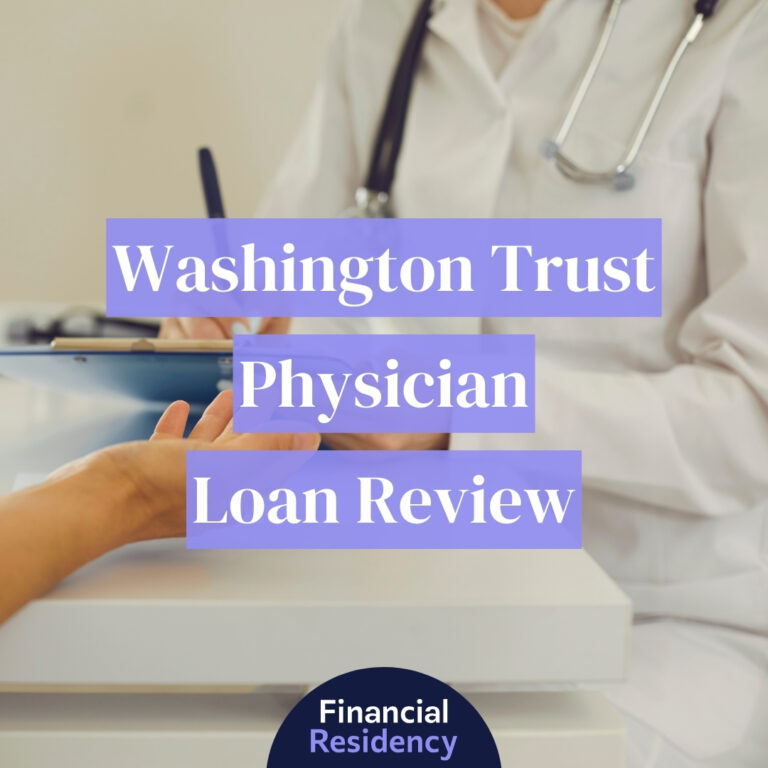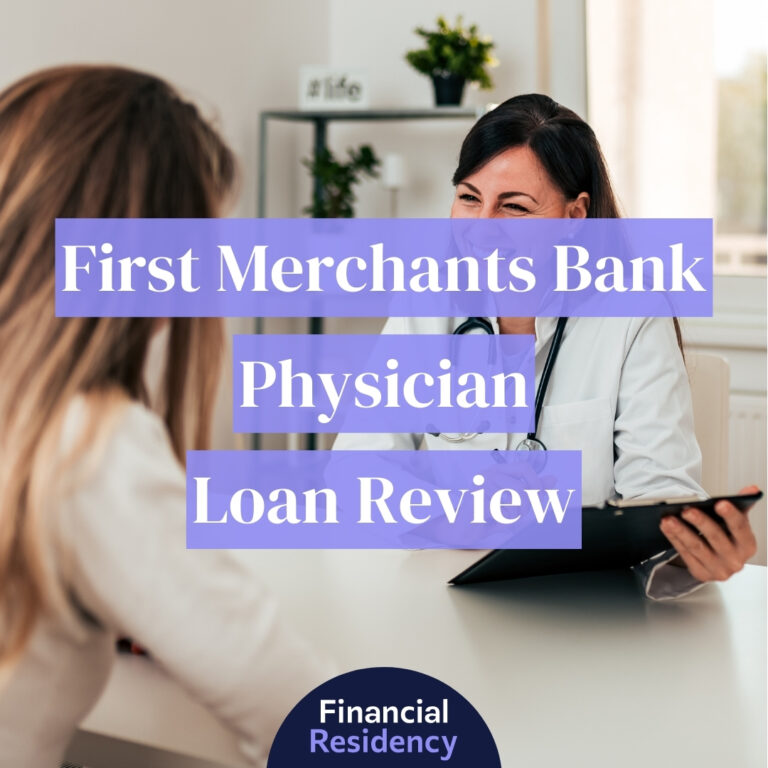Becoming a nurse practitioner has countless benefits, including significant earning potential, flexible work hours, and the ability to challenge yourself in a life-changing medical specialty.
But even advantageous career choices can come with trade-offs. The average nurse practitioner has between $40,000 and $54,999 in student loan debt.
The cost of paying for school and other living expenses can also lead to credit card debt. Conventional loans require debt-to-income ratios in the neighborhood of 43%, which can marginalize medical professionals, especially those early on in their careers.
Nurse practitioner home loans can help you purchase or refinance your home without subjecting you to the barriers of conventional loan programs.
Keep reading to better understand nurse practitioner home loans and review the offerings of our preferred lenders.
What is a Nurse Practitioner Home Loan?
A nurse practitioner home loan is another name for physician mortgage loans.
Physician mortgage loans are specially designed loan programs for high-earning medical professionals who may not have the income, credit, or employment history necessary to qualify for a conventional loan.
Physician mortgage loans allow healthcare professionals to purchase homes with low down payment options and no private mortgage insurance (PMI):
- Medical Doctors (MD)
- Dentists (DDS/DMD)
- Nurse Practitioners (CRNP)
- Veterinarians (DVM)
Nurse practitioner home loans are often jumbo loans, which means they exceed the conforming loan limit set by the Federal Housing Finance Agency (FHFA). In 2024, the conforming loan limit is $766,550 for a single-family residence.
Physician mortgage loans can be used to purchase or build a new home. Some mortgage lenders even offer cash-out and rate/term refinancing options for existing homes.
These home loans allow nurse practitioners to access large sums of money, even before they start working. Many mortgage lenders will accept signed employment contracts as proof of earning potential, which can be a great option for nurse practitioners relocating to continue their careers.
Nurse practitioner loans are also more lenient when considering student loan debt. In some cases, underwriting will completely exclude student loan debt deferred for 12 months or more. In other cases, they will use your income-driven repayment amount to calculate your monthly debt-to-income (DTI) ratio.
While physician mortgage loans may be more relaxed in some ways, borrowers will need good credit to qualify. We recommend a minimum credit score of 700 to increase your chances of qualifying with favorable terms.
8 Nurse Practitioner Mortgage Loan Programs
Here are the top mortgage lenders for nurse practitioners:
- Consumers Credit Union
- Evolve Bank & Trust
- Flagstar Bank
- First National Bank of Omaha
- First Citizens Community Bank
- The Federal Savings Bank
- Premier Bank
- Frandsen Bank & Trust
Discover The Best Lenders Answer just a few questions about your career, where you're buying, and how much you want to borrow. Our service will then show you the exact programs you're eligible for from vetted physician loan specialists who will guide you through every step of the process – obligation-free!
1. Consumers Credit Union
- BBB Grade: A+
- D. Power Score: N/A
- State availability: IN, MI
Consumers Credit Union customizes its home loans to meet the needs of its borrowers. Its physician loan program is open to the following degrees and some others upon request:
- CRNA (Nurse anesthetist)
- DDS
- DMD
- DO
- MD
- NP
- PA (Physician Assistant)
Nurse practitioners can borrow up to $750,000 at zero percent down without private mortgage insurance.
Borrowers can put down as little as 5% on loans of more than $750,000. This home loan is an excellent option for borrowers with minimal cash on hand.
You’ll need a minimum credit score of 700 to qualify. This lender will exclude all deferred student loan balances from your DTI calculation.
Loans may be used to purchase or refinance a single-family primary residence.
Unlike other physician mortgage loan programs, Consumers Credit Union will provide financing for warrantable condominiums.
Borrowers can choose from a 30-year fixed-interest rate mortgage or a 7/1 adjustable-rate mortgage (ARM).
Learn More:
2. Evolve Bank & Trust
- BBB Grade: B
- D. Power Score: N/A
- State availability: All 50 states
Evolve Bank & Trust opens its doctor mortgage program to the following healthcare professionals:
- Chiropractor (DC)
- Dental Surgeons
- Dentists
- Medical Doctors
- Nurse Anesthetists,
- Nurse Practitioners (NP)
- Optometrist (OD)
- Pharmacists (RPH)
- Physician’s Assistant (PA)
- Podiatrist (DPM)
- Veterinarians
The program will provide home loans of up to $1 million without a down payment. Loans up to $2 million will require a 10 to 15% down payment depending on the total loan amount. All loans waive the PMI requirement regardless of the down payment.
Nurse practitioners can close up to 90 days before they begin working with a verified employment contract.
Learn More:
3. Flagstar Bank
- BBB Grade: A+
- D. Power Score: 781
- State availability: Nationwide
Flagstar Bank is one of the most inclusive physician loan mortgage programs in the space. Its professional loan program includes high-earning individuals across several industries.
The following degrees are eligible for a Flagstar Bank professional loan:
- ATP Pilot
- Attorney
- Certified Public Accountant
- Clinical Nurse Specialist
- Doctor of Dental Medicine (DMD)
- Doctor of Dental Surgery (DDS)
- Doctor of Ophthalmology (MD)
- Doctor of Optometry (OD)
- Doctor of Osteopathy (DO)
- Doctor of Pharmacy
- Doctor of Podiatric Medicine (DPM)
- Medical Doctor (MD)
- Medical Resident (Educational License)
- Nurse Anesthetist
- Nurse Practitioner
- Physician Assistant
- Registered Nurse
- Veterinarian
However, the professional loan program is limited to individuals within the first ten years of their careers.
Borrowers with a 720 credit score or higher can qualify for up to $1 million without a down payment, but low down payment options are available for home loans up to $1.5 million.
The program will use your income-driven repayment amount for student loan debt when calculating your DTI ratio.
It’s important to note that the professional loan program is only available as an adjustable-rate mortgage. Adjustable-rate mortgages can be attractive because they often start with a fixed introductory rate. Once the fixed rate expires, your interest rate will fluctuate on predetermined reset dates.
The fluctuating interest rate can make it difficult to anticipate the size of your loan payments year to year.
Learn More:
4. First National Bank of Omaha (FNBO)
- BBB Grade: A+
- D. Power Score: 847
- State availability: CO, IL, IA, KS, NE, SD, TX, WY
Like Flagstar Bank, First National Bank of Omaha (FNBO) prefers borrowers with a 720 credit score or higher.
The Professional’s Mortgage Loan program will provide up to $850,000 in financing without a down payment. Loan amounts of up to $1.5 million will require a 5-10% down payment.
The following degrees are eligible for fixed and adjustable-rate mortgage loans from FNBO:
- CFA
- CPA
- CRNA
- DDS
- DMD
- DO
- DVM
- JD
- MD
- NP
- PA
Loans may be used to purchase a new home or refinance an existing single-family owner-occupied residence in one of FNBO’s lending areas.
Learn More:
5. First Citizens Community Bank
- BBB Grade: A
- D. Power Score: 838
- State availability: AZ, CA, CO, FL, GA, KS, MD, MO, NE, NV, NM, NC, OK, OR, SC, TN, TX, VA, WA, WV, WI
First Citizens Community Bank offers its Medical Professional Mortgage Program to the following degrees:
- MD
- DM
- DO
- DPO
- DDS
- DMD
- PA
- CRNA
- CRNP
- DPT
In addition to holding a qualifying degree, borrowers must also have a minimum credit score of 700 and an account with the bank. When you’re approved for a mortgage, your monthly loan payment will automatically debit from your account.
The Medical Professional Mortgage Program offers two home loan options––both of which provide 100% financing.
Eligible healthcare professionals can choose a 100% mortgage option, which bundles all recurring fees into one monthly payment. You can choose 15, 20, or 30-year loan terms.
The other option is an 80/20 mortgage. In this loan program, 80% of the loan amount is financed with the same terms as a traditional physician mortgage.
The remaining 20% will be financed as a home equity line of credit. This mortgage option allows homeowners to build equity sooner and pay down debt quicker.
Borrowers must provide income verification through a signed employment contract or three years of tax returns.
Learn More:
6. The Federal Savings Bank
- BBB Grade: A+
- D. Power Score: N/A
- State availability: All 50 states
The Federal Savings Bank offers a specialized home loan program for medical professionals. The following professionals are eligible:
- APRN
- CRNA
- DDS
- DMD
- DO
- DPM
- DVM
- MD
- NP
- OD
- PA
- PharmD
- Psychologist
The program will provide financing for loans up to $2 million without requiring monthly PMI payments. Student loans that have been deferred for 12 or more months are excluded from DTI calculations.
Your immediate family members can gift funds used for a down payment, closing costs, or cash reserves. Sellers may cover up to 6% of your closing costs.
Employment contracts may be used to close on your property up to 90 days before you start working.
Learn More:
7. Premier Bank
- BBB Grade: A+
- D. Power Score: N/A
- State availability: IN, MI, OH, PA
Premier Bank offers its Medical Professional Loan program to physicians, nurse anesthetists, certified nurse practitioners, physician assistants, veterinarians, physical therapists, optometrists, and chiropractors.
Qualified buyers can borrow up to $750,000 without a down payment, while other buyers can qualify for up to $1 million with down payments between 5 and 10%.
You may close on your home up to 90 days before you start working with a signed and future-dated employment contract.
Like with many physician mortgage programs, deferred student loan debt isn’t factored into your monthly DTI ratio, which can make it easier to qualify for a home loan.
Learn More:
8. Frandsen Bank & Trust
- BBB Grade: A+
- D. Power Score: N/A
- State availability: MN, WI
Frandsen Bank & Trust has a team of knowledgeable and dedicated loan officers who specialize in medical professional home loans.
The following degrees are included in the program:
- MD
- DO
- DMD
- DDS
- DPM
- CRNA
- DVM
- OD
- PharmD
- RPh
- NP
- PA
In general, the medical professional program requires a minimum down payment of 5%, but there are some cases the down payment could be negotiated downward.
Loans may be used for primary, secondary, and investment homes. Deferred student loan debt is excluded from DTI ratio calculations.
Unlike many other physician loan programs, Frandsen Bank & Trust doesn’t impose a time limit for employment contracts. Any fully executed employment contract may be used as proof of income.
Learn More:
Pros and Cons of Nurse Practitioner Home Loans
Considering the pros and cons of nurse practitioner home loans can help you make the best decision for your needs.
Pros:
- Not subject to the same loan limits: Doctor loan programs aren’t conforming loans, so they don’t have to abide by traditional loan limits. Qualified candidates can sometimes borrow loans of up to $3.5 million.
- Low down payment: Physician mortgage loans sometimes don’t require any down payment. In other cases, you can borrow large sums of money with as little as 5% down.
- Can be used for a home purchase or refinance: This type of loan program can be used to rate/term or cash-out refinance your existing home or purchase a new home.
- No private mortgage insurance: Regardless of your down payment amount, doctor loan programs don’t require PMI, which can save you hundreds on your monthly payments.
- May exclude student loan debt: Doctor mortgage loans have more flexible DTI calculations. In some cases, they will exclude deferred student loan debt or use your income-driven repayment amount.
- Buy before you start working: Physician loan programs can allow you to close on your home up to 90 days before you start working as long as you can provide a signed employment contract.
Cons:
- High monthly payment: Because physician loan programs allow nurse practitioners to borrow substantial amounts, the monthly payments can be higher than conventional mortgage loans.
- Limited home equity: Due to the low down payment, nurse practitioners are starting homeownership with less than 20% home equity.
- Adjustable-rate mortgages: A lot of doctor loan programs have variable interest, which means your monthly payment will fluctuate over the loan term.
Other Home Loan Options for Nurse Practitioners
If a doctor mortgage loan isn’t right for you, several other options exist.
1. 80/10/10 mortgage
In general, a 20% down payment is required to avoid paying PMI, but there is an interesting workaround.
Borrowers who can’t afford a 20% down payment can take out a mortgage loan for 80% of the home’s purchase price and then get a second mortgage for a 10% down payment.
The second loan is typically a home equity loan.
Borrowers can then put down 10% cash and supplement with the second mortgage to achieve 20% home equity and thus not pay monthly private mortgage insurance.
2. FHA Loan
FHA loans are insured by the Federal Housing Authority, which allows local mortgage lenders to offer attractive terms to qualifying borrowers.
The Federal Housing Authority assumes the risk of default, so lenders are more likely to be flexible, which can help buyers who don’t meet the qualifications for other home loans.
If you have a credit score of 580 or higher, you may be a good candidate for an FHA loan. This type of loan only requires a 3.5% down payment, but it may accept lower credit scores if you can put down 10%.
The FHA will determine the loan amount you’re eligible for based on your location. Areas with low cost of living will have lower loan limits, and areas with higher cost of living will have higher loan limits.
There are some special exception areas, such as Hawaii, Alaska, and Guam. In these areas, construction costs are notoriously high, so the FHA adjusts for those costs.
The FHA also has a list of property requirements. For example, all properties must be assessed by an FHA-approved appraiser before the loan is finalized.
Keep in mind that FHA loans will require a 1.75% upfront funding fee and monthly mortgage insurance.
3. VA Loan
VA loans are another government-sponsored mortgage option. The Department of Veteran Affairs offers VA loans to any current or previous armed forces member or reserves in good standing.
VA loans do not require a down payment, and there is no standardized credit score requirement. Instead, the VA requires participating lenders to review the entire loan profile.
The VA even has programs to help veterans avoid defaulting on their home loans.
One of the big benefits of VA loans is that you can use this option more than once. For example, you can use it to purchase your primary residence and later refinance, or you can use it to purchase your next home down the line.
Like FHA loans, VA loans require a funding fee. This fee is typically 2.15% of the total loan amount, but it may be as high as 3.3% for borrowers who have already participated in the program.
4. USDA Loan
USDA loans are a third government-sponsored mortgage option. In this case, it’s the Department of Agriculture.
USDA loans are designed for low-income borrowers who want to purchase, build, or rehabilitate a property in designated rural areas. As such, there are strict income eligibility requirements.
USDA loans do not require a down payment, but you must agree to use the property as your primary residence.
In general, a credit score of 640 or higher is recommended for USDA loans. If you can’t meet this requirement, you should still apply. In some cases, you may be approved if you can demonstrate a favorable debt-to-income ratio, sufficient cash reserves, or other risk-reducing financial factors.
5. HomeReady and Home Possible
Fannie Mae and Freddie Mac offer specialized mortgage options for low and moderate-income home buyers. Both programs have income limits to ensure funds serve the intended demographic.
Both these programs allow you to use gift funds toward the down payment or closing costs.
These programs are also a great option for borrowers who haven’t yet established a credit history because you can use alternative payment histories, such as rent or utility payments.
Borrowers don’t have to be first-time homeowners, but you will be disqualified if you currently own a home in the U.S.
We recommend talking with a loan officer to see if one of these loan programs fits your financial needs.
6. Conventional Loan
Conventional loans are the default mortgage option for U.S. home buyers according to 2021 data from the Home Mortgage Disclosure Act.
Conventional loans have stricter qualifications for down payments, debt-to-income ratios, and credit history, but they are less restrictive for the types of property you can purchase.
In general, borrowers with better credit scores, high incomes, and lower DTI will be eligible for more favorable rates and loan terms.
Conventional loans will vary based on the loan program and mortgage lender you select, but you can put as little as 3% down in some cases.
Grants and Down Payment Assistance for Nurse Practitioners
There are some grants and down payment assistance programs for nurse practitioners who need extra help to purchase a home.
Nurse Next Door
Nurse practitioners, teachers, law enforcement officers, and first responders qualify for Nurse Next Door’s services.
Nurse Next Door will award grants of up to $8,000 to qualified buyers interested in purchasing a home. Grants can be used on any property.
The organization will also provide up to $10,681 in down payment assistance.
Dedicated loan officers will connect you with specialized interest rates, free appraisal, discount title fees, and many other perks.
The organization will even help borrowers with troubled credit histories through its Fresh Start credit repair program.
Good Neighbor Next Door
The U.S. Department of Housing and Urban Development (HUD) offers its Good Neighbor Next Door program to teachers, law enforcement officers, and emergency medical technicians who purchase homes in revitalization areas.
The Good Neighbor Next Door Program allows qualified professionals to purchase homes at a staggering 50% discount. Borrowers will have to meet stringent requirements, including taking out an interest-free HUD mortgage and agreeing to live in the property for three years.
Only select properties are eligible for the Good Neighbor Next Door Program.
National Homebuyers Fund
The National Homebuyers Fund provides prospective homeowners with down payment and closing cost assistance up to 5% of the mortgage amount. This form of assistance can be used with conventional, FHA, USDA, and VA loans.
The organization has flexible credit scores and DTI ratio requirements, which can further help borrowers purchase homes they’d otherwise struggle to afford.
The National Homebuyers Fund does not directly service mortgages. Instead, it sponsors loans serviced by participating mortgage lenders across the U.S.
Down Payment Assistance (DAP) in Your State
A comprehensive database of down payment assistance programs has yet to be created, but there are a plethora of programs across the country.
HUD has a list of local programs by state, but it’s important to ask your loan officer and do your research to find other assistance options near you.
Frequently Asked Questions
What is the interest rate on a nurse practitioner home loan?
The interest rate on nurse practitioner home loans is determined by the rates set by the Federal Reserve. Mortgage lenders will determine your interest rate when you apply for a home loan. Interest rates are calculated based on the risk the lender takes on for each borrower.
Interest rate calculators will consider factors such as your credit score, debt-to-income ratio, and loan amount. You can check average weekly interest rates online at Freddie Mac.
What are the requirements for a nurse practitioner to qualify for a home loan?
There are several requirements for a nurse practitioner to qualify for a home loan. The exact requirements will vary by lender and the home loan program you choose, but in general, physician mortgage loans require:
- Minimum credit score of 700
- Must purchase or refinance a primary residence
- Debt-to-income ratio of 50% or less
- Employment contract or two years of tax returns
- Down payment, closing costs, or sufficient cash reserves
- Qualifying degree (CRNA, CRNP, or other healthcare professions)
What are the average closing costs for a nurse practitioner home loan?
The average closing costs for a nurse practitioner home loan vary by state and mortgage lender. Closing costs can be negotiated, but they’re typically between three and six percent of the total loan amount.
After your loan is approved, you will receive a closing disclosure outlining all the fees and taxes you must pay when you close on your home loan.
In some cases, sellers will pay a percentage or all of the closing costs. In other cases, you may be able to bundle closing costs into your total loan amount. You can talk to your loan officer to find out what you can expect on the closing disclosure.
Are there special home loans for nurses?
Yes, there are special home loans or programs. Nurse practitioners, certified registered nurse anesthetists, and other advanced degree nurses may be included in doctor mortgage programs.
These programs allow medical professionals who otherwise wouldn’t qualify for a conventional loan to purchase homes with little to no down payment, no private mortgage insurance, and more relaxed debt-to-income calculations.
Talk to a loan officer or mortgage broker today to find the physician home loan program that works best for your financial situation.




